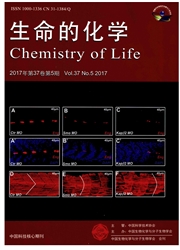

 中文摘要:
中文摘要:
诱导和维持T细胞耐受是免疫系统区分自我和非我的关键。自身免疫调节因子(autoimmune regulator,AIRE)作为转录因子,在胸腺髓质上皮细胞中可驱动一系列组织特异抗原基因的表达,从而在诱导中枢免疫耐受的过程中发挥重要作用。外周免疫耐受的机制复杂一些,清除耐受是其重要机制之一。外周淋巴结的基质细胞可表达部分组织特异抗原,递呈给T淋巴细胞,激活并最终清除它。中枢免疫耐受和外周免疫耐受机制可清除潜在的自身反应性T淋巴细胞,维持对自身组织耐受。一旦免疫耐受被打破,将发生自身免疫反应和自身免疫疾病。
 英文摘要:
英文摘要:
Induction and maintenance of T cell tolerance are vital for the immune system to distinguish self from non-self.AIRE(autoimmune regulator) is a transcription factor that drives ectopic expression of many tissue specific antigens in medullary thymic epithelial cells,and which has an important role in the induction of central tolerance.Peripheral tolerance is more complex,deletional tolerance is one of the main mechanisms.Some tissue specific antigens which ectopically expressed in peripheral lymph node stromal cells can be present to T lymphocytes,activate and finally delete them.Central and peripheral tolerance mechanisms can delete potential autoreactive T cells,and maintain tolerance to self tissues.Once breakdown,it will result in autoimmune reaction and autoimmunity.
 同期刊论文项目
同期刊论文项目
 同项目期刊论文
同项目期刊论文
 期刊信息
期刊信息
